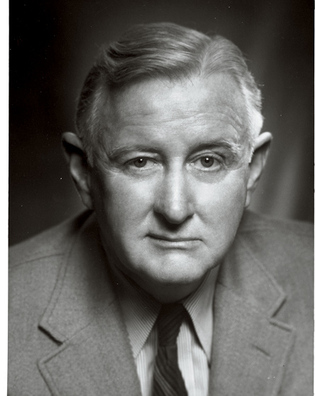 loading
loading
What can we say? Manuscripts & ArchivesAfter a series of struggles over free speech on campus, Yale president Kingman Brewster appointed C. Vann Woodward (above) in 1974 to lead a Committee on Freedom of Expression. The Woodward Report became official university policy. View full imageThe Woodward report had triumphed, but since it said nothing about freedom of expression for students dealing with each other, the campus would face a different kind of test a few years later. In April 1986, an unsigned table tent parodying Gay and Lesbian Awareness Days (GLAD) appeared on dining hall tables around the campus. It announced “Bestiality Awareness Days” with a lecture by “Professor Baaswell”—an obvious reference to Yale professor John Boswell, historian of early Christian toleration of homosexuality. The flyer was crude and offensive to gay and lesbian people and other members of the Yale community. A formal complaint was submitted to the Yale College Executive Committee by the head of the Afro-American Cultural Center and one of the organizers of GLAD. An investigation of local copy shops revealed that the author and distributor was Wayne Dick ’88, a sophomore. Dick was called before the committee and charged with violating an undergraduate regulation barring “harassment, intimidation, coercion, or assault . . . against any member of the community, including sexual, racial, or ethnic harassment.” Dick said if he had offended “any member of the university community,” he apologized. But was he not exercising freedom of expression? Did not the Woodward Report say that the university’s obligation to “guarantee free expression” was superior to the values of “solidarity, harmony, civility, or mutual respect”? The Executive Committee, declaring the table tent worthless and offensive, said the Woodward Report did not apply. Dick was sentenced to two years’ probation. Dick appealed to outgoing president A. Bartlett Giamatti ’60, ’64PhD, who said Yale would always protect free expression, but upheld the Executive Committee’s decision. By this time, journalist Nat Hentoff of the Village Voice had become interested in the case. He wrote incoming president Benno C. Schmidt Jr. ’63, ’66LLB, and spoke with Woodward and Guido Calabresi ’53, ’58LLB, dean of the Law School. Schmidt waited until taking office and then looked into the case. He urged Dick to appeal. Under pressure, the Executive Committee expunged probation and the incident from Dick’s record. Was the outcome a victory for free expression or for bigotry? Was it both? Or neither? In 2009 there was an echo of Kingman Brewster’s placing of prudence above free expression in 1963. Yale University Press published Jytte Klausen’s Cartoons that Shook the World, an investigation of the controversy surrounding cartoons that had appeared in a Copenhagen newspaper in 2005. (See “No Middle Ground,” November/December 2009.) Cartoonist Kurt Westergaard had depicted Muhammad with a bomb in his turban. For some Muslims this was blasphemy, even a capital offense. Westergaard and his newspaper were repeatedly threatened. Danish embassies were set afire. Riots allegedly tied to terrorist organizations broke out in many places. Might the Yale community and the author of the book be in danger were the cartoons in question republished? The answer at the Yale Press was yes. The book was published without the cartoons. Yale was criticized by many organizations and by the Yale Committee for a Free Press, a new group including prominent alumni. “Such censorship corrodes the intellectual freedom that is the foundation of the entire university community,” said the alumni, in words Woodward would have approved. The struggle over the meaning of the Woodward Report continues. The focus recently has been on the words and behavior of fraternity pledges. Three years ago, some members of Zeta Psi were photographed standing in front of the Women’s Center holding a sign declaring “We Love Yale Sluts.” Women were outraged, but the ghost of the Wayne Dick affair was in the air. No punishment was inflicted on the sign holders or the fraternity. Then in October 2010, pledges from Delta Kappa Epsilon (DKE) went too far. In public where all could hear, they chanted hideous remarks making light of rape, indeed condoning it. If words could rape, here they were. As Yale explained recently, the Executive Committee did take action against DKE after finding that the fraternity “had threatened and intimidated others,” as Dean Mary Miller ’81PhD explained in a letter to students and faculty. The ruling suggests that the committee saw the DKE chants not simply as free speech but as threats, which courts do not usually view as protected speech. Not surprisingly, though, the sanctions against DKE have been criticized by free speech advocates on campus and off. “When it becomes a near-crime to utter a silly or boorish chant on a college campus, everyone’s freedom of speech and association is at risk,” argued Weekly Standard writer Charlotte Allen in a Los Angeles Times op-ed. The ideals and limits of free expression at the university will continue to be tested.
The comment period has expired.
|
|